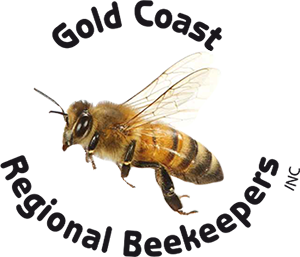
Starting Out in Beekeeping
Do some homework, talk to beekeepers at your local markets to see what is involved with the having your own bee hives.
Join your local beekeeping (apiary) club and talk to people who have been involved in beekeeping for many years. Offer to help them work on their hives to see if you are really keen to get your own hives
New Biosecurity laws came into effect as from the 1st July 2016 and are available on the AHBIC web site.
By joining your local bee club, you can join experienced members opening and inspecting hives as well as extracting honey. This enables you to get some prior knowledge and experience before deciding whether buying your own hives and equipment is what you want to do.
Decide whether you will start beekeeping by buying all of the necessary supers, frames, bottom boards, excluders, lids etc. and building your own hive, an existing hive from a club member or starting with a nucleus hive from a breeder or club member.
For your first hive it is often easier to buy an existing, productive hive and grow from there, BUT always take an experienced an experienced beekeeper with you.
To keep bees in Queensland you must first register with the Queensland Agriculture, Fisheries and Forestry (DAFF), or NSW Regulatory Specialist (Apiaries) NSW Department of Primary Industries PO Box 546 Gunnedah, NSW 2380 and obtain your Registered Brand Number. This registration is to be renewed yearly.
Now you are ready to get your own bees. Use the knowledge of experienced members when you choose your equipment. New, second hand, or built by you. It is your choice, but don’t buy 2nd hand equipment unless you have them inspected to make sure they are not been infested by a foul brood. Helping new members is one of the prime functions of the club.
As part of our service to club members, the club has appointed an equipment officer. He keeps a general stock of all equipment and will order in any item he may not have. Pricing is competitive so club members benefit from the clubs buying power. When purchasing beekeeping equipment, remember to add in the supplier’s freight costs and GST.
If you are buying 2nd hand, purchase from a reputable, registered beekeeper. This is to ensure that you get what you are actually paying for. If you are unsure, ask an experienced club member or the equipment officer’s help. It is important to buy a hive locally to restrict diseases as much as possible.
A list of basic requirements can be found in the Equipment section of this site.
